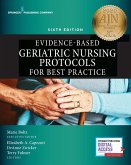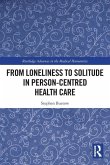Winner of an AJN Book of the Year Award! Designated a Doody's Core Title! I have not seen a book that does a better job with synthesis or provision of good concise information to those in need." (3 Stars)--Doody's Book Review Service Wandering behaviors are among the most frequent, problematic, and dangerous conditions associated with dementia and a continual challenge in health care and the community. Strongly research-based, this book presents and analyzes the latest research on wandering from the clinical, health care management, and policy literature and offers practical assessment and management tools. Nurses, physicians, gerontologists and others address the range of wandering behaviors of patients with Alzheimer's and other dementias, including prevention of elopement, getting lost, falls, fractures, and the subsequent need for extended nursing home or other supervised care that may result. The book places special emphasis on the difficult and stressful problems of daily patient care, improving safety for those with cognitive impairments, and enabling those with dementia to remain independent longer. This book is for all caregivers intent on improving care for the nearly 5 million Americans who are at risk. Key Features of this book: Offers practical tools for measuring and assessing wandering Emphasizes difficult and stressful daily problems of patient care Assesses medication and nonpharmacological interventions Describes the Alzheimer's Association's Safe Return¿Ü Program Weighs environmental design factors that influence wandering behaviors
Hinweis: Dieser Artikel kann nur an eine deutsche Lieferadresse ausgeliefert werden.
Hinweis: Dieser Artikel kann nur an eine deutsche Lieferadresse ausgeliefert werden.








